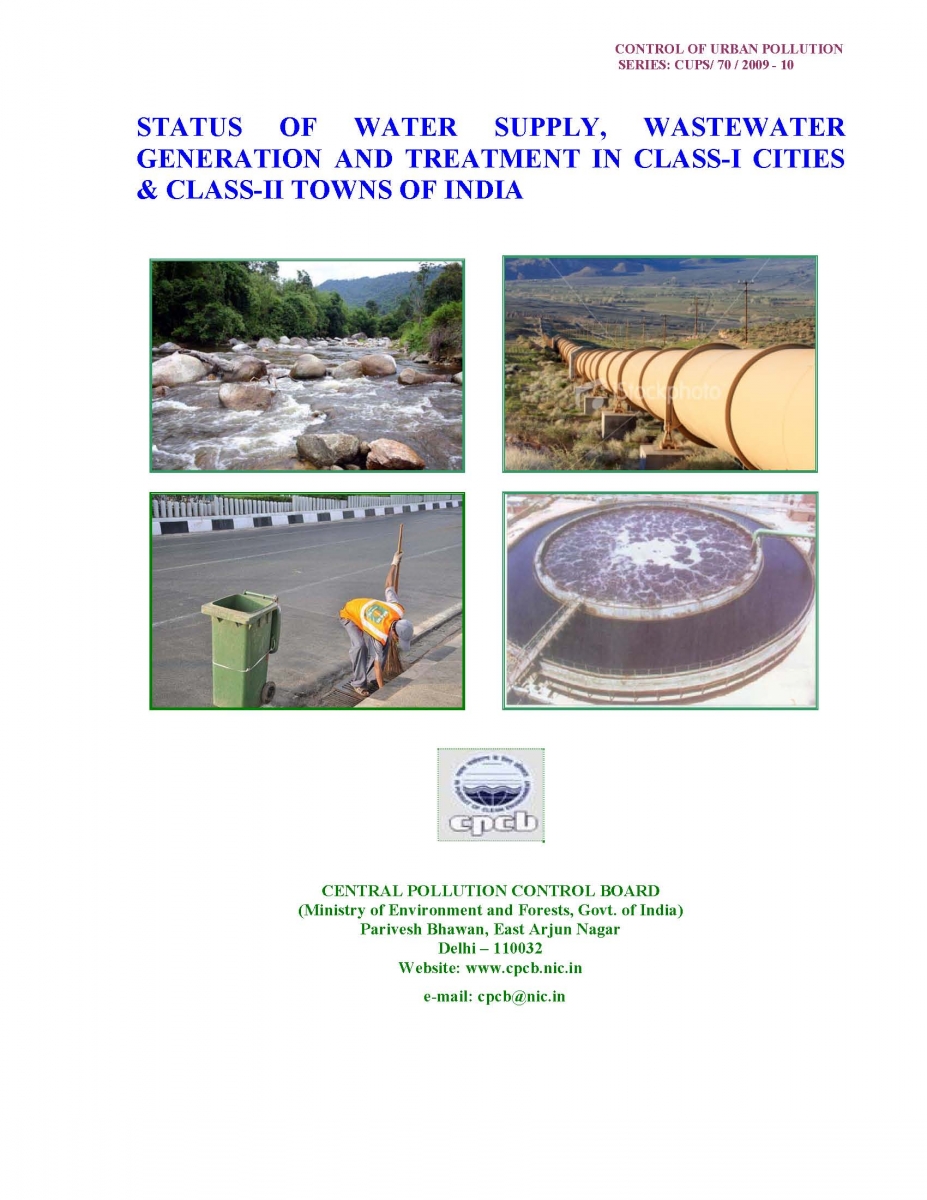/topics/wastewater-reuse-and-recycling
Wastewater Reuse and Recycling
e-Disha July newsletter from Consortium for DEWATS Dissemination Society
Posted on 08 Jul, 2010 10:05 AMArticle and Image Courtesy: Consortium for DEWATS Dessemination Society

The July edition of e-Disha published by the Consortium of DEWATS Dissemination Society (CDD) has the following highlights:
Training programme on domestic wastewater treatment and reuse, CSE, New Delhi
Posted on 07 Jul, 2010 05:48 PMOrganizer: Centre for Science and Environment
Venue: Centre for Science and Environment, 41 Tughlakabad Institutional Area, New Delhi
Description:
The water and sewage management in cities will determine the quality of life in urban India. Most cities are today water stressed, unable to cope with the water demand of the growing urban populations and to treat the resulting wastewater.
Round up of the water news for the week ending 31st May 2010 : Six sewage treatment plants coming up in tsunami-affected areas of Nagapattinam, TN
Posted on 31 May, 2010 10:31 PMSome recent news items from the news feed that India Water Portal maintains at Newsrack: (http://newsrack.in/stories/arghyam/Water/55) :
- Six sewage treatment plants coming up in tsunami-affected areas of Nagapattinam, TN : https://www.thehindu.com/2010/05/31/stories/2010053157650600.htm
"Kochi: To Get Rs 100 Crore Modern Sewerage System" : Droplets (May '10)
Posted on 25 May, 2010 12:08 PM
Highlights
- Kochi: To Get Rs 100 Crore Modern Sewerage System
- Punjab: Rs 53.58 Crore New Water Supply & Sewerage Project
- Pune: To Construct 120 MLD Water Filtration Plant
- Water.Org: Launches India WaterCredit Forum
Water conservation by Industry – A case study of Mahindra and Mahindra, Zaheerabad
Posted on 30 Apr, 2010 11:07 AMThe presentation deals with Mahindra and Mahindra’s (M&M) work on optimal utilization of groundwater resources in its vehicle manufacturing plant at Zaheerabad, Andhra Pradesh. M&M had taken help from ICRISAT and Groundwater Department of GoAP to study the hydro-geology and topography of the estate and prepare ground water maps.
A time bound master plan of water augmentation was worked out to undertake activities like rainwater harvesting pits, new locations for borewells/ openwells/ percolation tanks, planting of less water intensive trees, re-usage and re-cycling of wastewater, rainwater channels to recharge the under ground water reservoirs and installation of drip irrigation.
Water conservation by Industry – A case study of ITC, Saharanpur
Posted on 29 Apr, 2010 12:41 PMThis presentation describes the work of ITC Saharanpur, a cigarette manufacturing company in the field of water conservation. Its water saving projects are centered around re-use of treated water for reducing water consumption, Effluent Treatment Plant (ETP) based effluent network system in residential areas, rainwater harvesting, installation of Cold Plasma Unit in place of wet scrubbers and installation of a jet spray system.
Rain water harvesting, recycling, reuse of waste water and using less water will help in water conservation, says Sekhar Raghavan, director of Rain Center, Chennai
Posted on 21 Apr, 2010 05:45 PMPost forwarded by : Sekhar Raghavan
Case studies on Water Management by Industry from the CII-GBC National Awards for Excellence in Water Management (2007)
Posted on 21 Apr, 2010 12:43 PM![]()
The CII-GBC National Awards for Excellence in Water Management 2007 are an important step towards encouraging, supporting and applauding industry efforts to conserve water and reduce toxic effluent discharge. As India's economic boom gathers more and more momentum with each passing year, industrial water and energy use and related environmental impacts are going to be among the most critical factors in resource sustainability debates in the country and elsewhere. The companies portrayed represent a wide spectrum of industry: paper, metals, agro-processing, synthetic fibre, petroleum, transport, cement, energy, fertilizer, soft drinks and more.
Status of water supply and wastewater generation and treatment in Class-I cities and Class-II towns of India - A report by CPCB (2009)
Posted on 23 Mar, 2010 03:34 AM This is the fourth in a decadal series of reports published by the Central Pollution Control Board (CPCB), previous ones published in 1978-79, 1989-90 and 2000, which provides basic information about the status of water supply and sewage generation and treatment of 498 Class-I cities and 410 Class-II towns, along with information on 53 coastal Class-I cities and 35 coastal Class-I towns, besides Ganga Basin as a separate subsection.
This is the fourth in a decadal series of reports published by the Central Pollution Control Board (CPCB), previous ones published in 1978-79, 1989-90 and 2000, which provides basic information about the status of water supply and sewage generation and treatment of 498 Class-I cities and 410 Class-II towns, along with information on 53 coastal Class-I cities and 35 coastal Class-I towns, besides Ganga Basin as a separate subsection.






